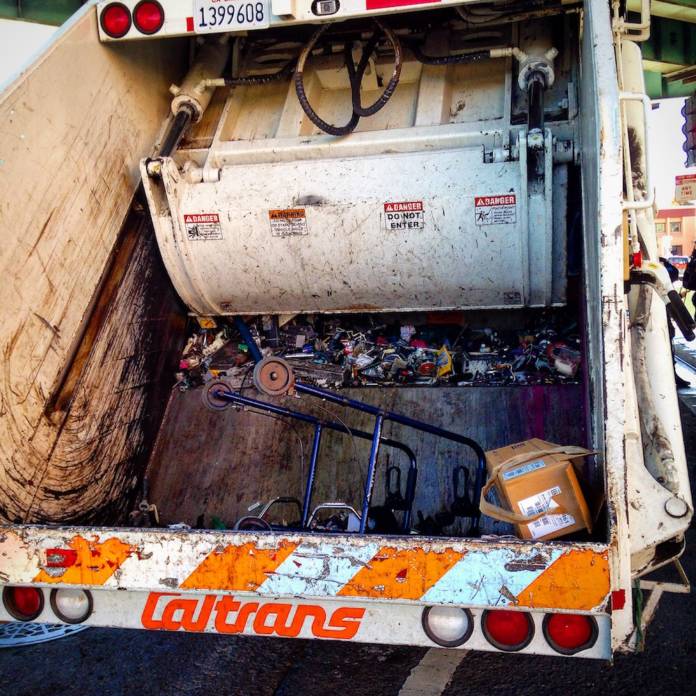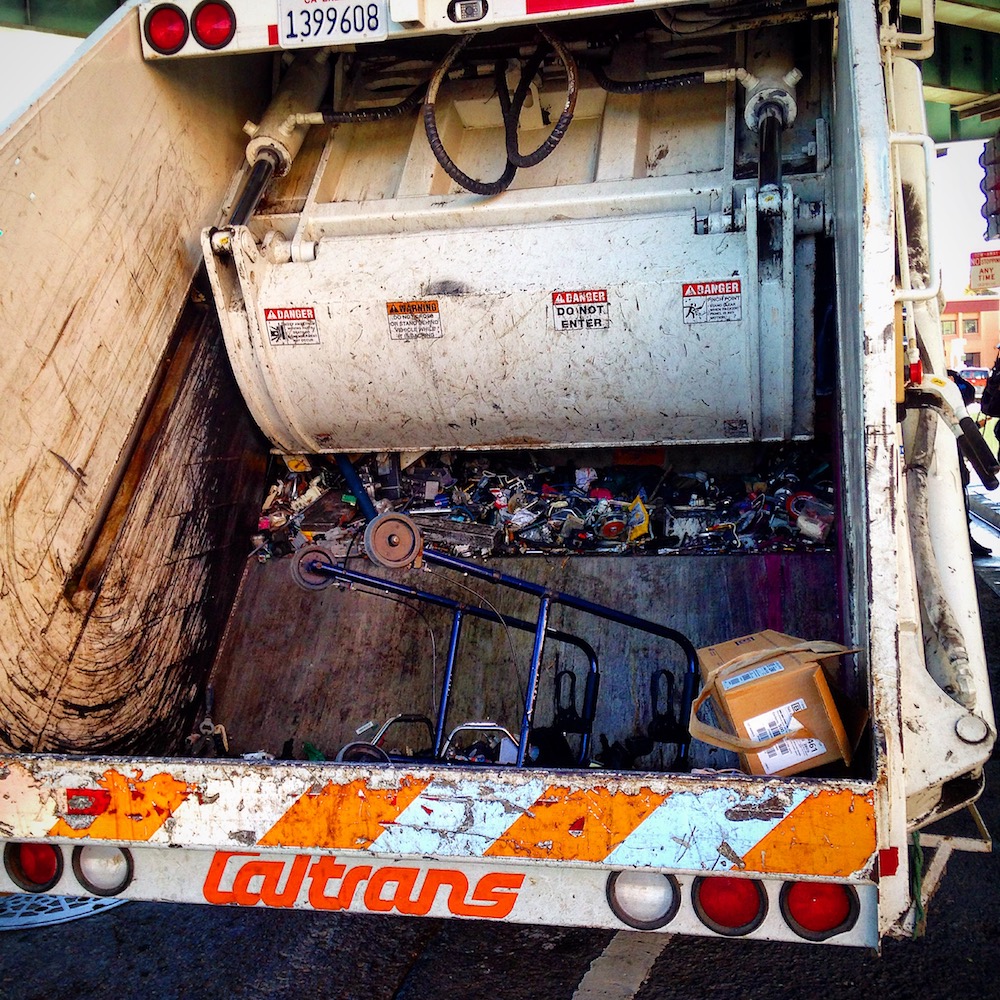
In a civil rights victory, Caltrans will pay $2 million for destroying homeless people’s property and will change procedures around homeless encampment evictions on Caltrans land.
The class-action lawsuit rests on the unjust seizure of personal property, a violation of the Fourth Amendment. The proposed settlement between Caltrans and homeless Californians includes a $1.3 million compensation fund for homeless people who lost property as a result of a sweep of their encampment.

The lawsuit was originally filed in 2016 and documented the destruction of personal belongings between December 2014 and October 2019.
Destroyed belongings have included life-sustaining items such as food, clothing, medical supplies, family heirlooms, and mobility aids. The fund will have three levels of compensation — $200, $1,000 and up to $5,500 — which will be distributed in proportion to the loss of property.
“Money can never erase the damage Caltrans did. It can’t, it won’t,” said Elisa Della-Piana, legal director at the Lawyers’ Committee for Civil Rights, the organization that represented homeless Californians in the class-action lawsuit. “The good news about this settlement is that it provides some statewide relief for everyone who is currently living on Caltrans land. The agency will have to follow basic protections.”
Patricia Moore, who has been homeless on and off since 2006, is one of three representatives in the case. In March 2016, Caltrans destroyed personal possessions including her tent, cot, sleeping bags, food, clothing, and toiletries. The agency only gave Moore a few minutes to gather her belongings.
“It was nowhere enough time,” Moore, who uses a wheelchair, states in the court documents. “Because of my disabilities, I had to move very slowly and could not carry anything heavy.”
Thousands of homeless Californians live on Caltrans land, often under freeways and underpasses. Many do so because the frequency of an encampment sweep is much less likely—they are hidden and tucked away.
Help us save local journalism!
Every tax-deductible donation helps us grow to cover the issues that mean the most to our community. Become a 48 Hills Hero and support the only daily progressive news source in the Bay Area.
Along with the compensation fund, Caltrans has agreed to implement policy reforms. Statewide, Caltrans will be required to post a 48-hour notice before conducting an encampment sweep; there will also be a phone number to arrange for retrieval of possessions and personal property will be stored for 60 days.
Berkeley, Emeryville, and Oakland will be part of a more stringent four-year pilot program. Schedules of cleanups will be posted on the website once a month and permanent signs (“akin to street sweeping signs” the court documents say) will notate days and times when routine sweeps occur. Caltrans will be required to produce an annual report on the pilot program.
Paul Boden, executive director of the Western Regional Advocacy Project, said that the policy reforms are simply iterations of the same thing: “You can fuck me over but you have to be nicer about it.”
Beyond homeless individuals receiving monetary compensation, Boden said he is wary of calling the settlement a win.
“Don’t be deceived that the settlement of this litigation means that people are relieved from institutional harassment.”
It’s true — and particularly clear from the court documents — that the litigation won’t stop encampment sweeps. Encampment residents will be given 30 minutes from arrival to pack up and leave; they’ll be given trash bags two hours before a sweep.
It’s also true that this is the first time Caltrans will be mandated by state courts to follow any procedure when evicting homeless encampments and, if followed, certain policies may provide some relief. “The benefit of these protections is that there is an easier way to get back into court to keep Caltrans accountable,” said Della-Piana.
Caltrans has also agreed to pay $700,000 to the Homeless Action Center, the plaintiff in the case, to assist homeless people in receiving settlement payments and connecting homeless people with social services.
Della-Piana said she hopes that the settlement will be approved by the Superior Court.
“We need solutions to homelessness,” she said. “Taking away what homeless people need for survival is causing more harm than good. We’re hopeful that this is one step towards a solutions-oriented mindset from the largest state agency that deals with encampments.”

